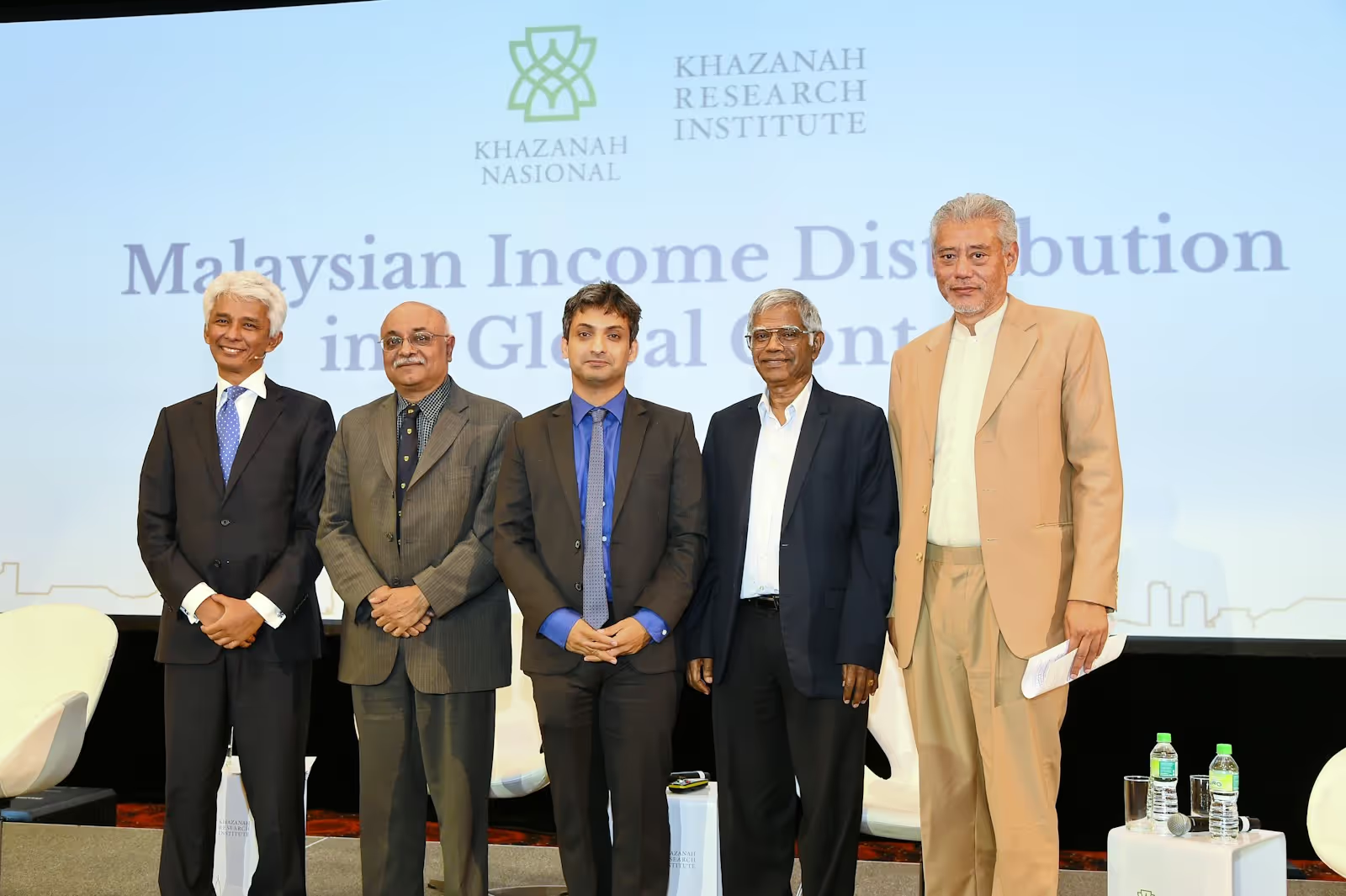
Session IV | Cross-National Frameworks and the Management of National Inequality
Lead presenter: Prof Ravi Kanbur, T.H. Lee Professor of World Affairs, International Professor of Applied Economics & Management, and Professor of Economics, Cornell University
Discussants:
Prof Arjun Jayadev, Professor of Economics at the School of Liberal Studies and Director of the Research Centre at Azim Premji University in Bangalore, India
Prof Jomo Kwame Sundaram, Visiting Senior Fellow, Khazanah Research Institute
Dato’ Dr R Thillainathan, Board Member, Institute for Democracy and Economic Affairs
Key Takeaways
1. National policies to deal with inequality are constrained by global spill-overs
- The world is going through an age of declining global inequality but this experience varies across countries as it is rising in some countries but falling in others
- At a national level, inequality may be reduced by employing policies that increase the supply of skilled labour, enacting minimum wage laws, encouraging labour-utilising research and development (R&D), among others.
- There are generally five spill-overs which may constrain the effectiveness of national policy: mobility of capital, mobility of skilled labour, mobility of lowincome unskilled labour, trade regulations and their impact on labour standards as well as other countries’ policies which incentive's public sector investment and R&D.
2. There exists an institutional vacuum at a global level as current institutional models may no longer be fit for purpose
- Taking the World Bank as a case study, the aim of the Bank during its inception in 1945 was to help the recovery in Europe and Japan via country-specific loans. The risk of the loan was shared by members on the basis of “joint and several guarantees” based on each country’s capacity
- However, global spill-overs affect multiple countries making it difficult to apportion the impact to particular countries as the existing framework demands. A solution to this would be to use grants instead of loans.
- There is a lack of political will to reform the World Bank; the US, for example, may be reluctant to allow changes to the Bank’s current shareholding structure as this results in the US losing its majority shareholder position and hence voting rights. Creating a new institution to deal with these issues may be out of the question because of the multilateral effects of the spill-overs.
3. For Malaysia, national policy design needs to better incorporate spill-over effects
- Overreliance on and discrimination against foreign labour will slow down growth for the low-income group and discourage the technological progress expected of a developing country.
- Malaysia must have a more positive basis for building a national and social consensus. With a more unified social compact, we can be better equipped to deal with social ills.
- Collectively, we need to understand the nature of the Malaysian economy to better customise solutions. A growing middle-income group is not necessarily an issue if society sees more modernisation of services.
Want more stories like these in your inbox?





